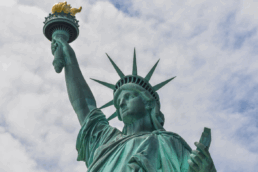The Canadian Senate passed a bill on June 19, 2018, that will allow for the legalization of recreational marijuana. The bill passed the Senate with a vote of 52-29. This was a historic moment, since Canada is only the second country in the world and the first G7 country to allow a nationwide marijuana market.
This bill was originally introduced on April 13, 2017. It passed the House of Commons in November of 2017. A vote in the Senate was the last step in the process. The Canadian government is expecting to select a date in September to implement the bill.
The intent of this bill is to discourage the Canadian youth from using marijuana and decrease the profits that criminals and organized crime gain from illegal drug activity. Once the bill is formally approved, adults will be able to carry and share marijuana in public, in addition to cultivating plants and preparing marijuana products for personal use. The Canadian government expects to see benefits to the economy as a result of this bill’s passage and implementation.
Consumers will be able to purchase marijuana from retailers that are regulated by provinces or territories, or from federally-licensed producers. Consumers will not be able to purchase marijuana at the same location where alcohol or tobacco is sold. Canada is also unveiling changes to their impaired driving laws to include offenses for driving while under the influence of marijuana. The production, distribution or sale of marijuana products to a minor under the age of eighteen will continue to be illegal.
This bill will have some major implications for cross-border travel and immigration between the U.S. and Canada. While marijuana is legalized in some U.S. states, it continues to be illegal on the federal level. Immigration law is federally regulated. This means that travelers crossing the border from Canada to even a state that allows recreational marijuana, such as Washington, can face severe consequences for possession or even admitting previous marijuana use. Travelers should keep this in mind when traveling between the U.S. and Canada.
Ready to have Berardi on your side?
Whether you’re a business looking to hire or a professional hoping to relocate, immigration law can be complicated. But you don’t have to do it alone. Put our experience to work for you.



